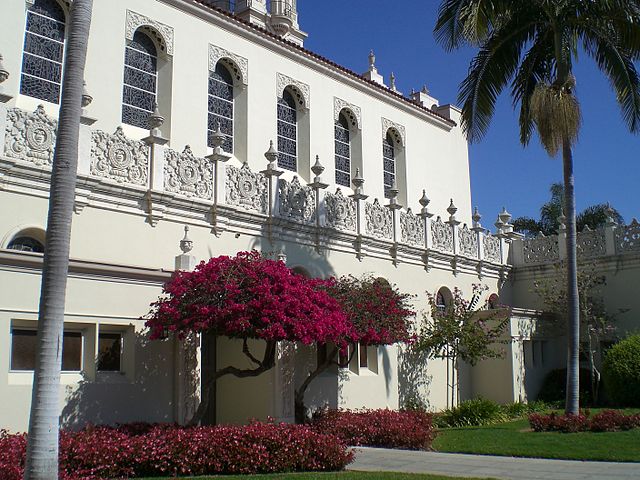Academia
U.C. DAVIS LAW SCHOOL CONVENES “ESA AT 40” CONFERENCE
U.C. Davis School of Law’s California Environmental Law & Policy Center to host major conference commemorating the 40th anniversary of the federal Endangered Species Act
This Friday, October 4th, the U.C. Davis School of Law’s California Environmental Law & Policy Center (CELPC) will convene a major conference commemorating the 40th anniversary of the federal Endangered Species Act. “The ESA at 40: Examining Its Past and Exploring Its Future” will bring to King Hall a broad array of ESA experts, including …
Continue reading “U.C. DAVIS LAW SCHOOL CONVENES “ESA AT 40” CONFERENCE”
CONTINUE READINGA New Climate Threat: “Academic Freedom” Laws
The other day I suggested that climate advocates ought to start working in school board elections as a way of building long term political support for vigorous climate action. Well, it looks like they will need to start playing defense as well. October’s Scientific American reports that climate deniers are now pushing the Orwellian “academic …
Continue reading “A New Climate Threat: “Academic Freedom” Laws”
CONTINUE READINGReforming Groundwater Adjudications: New Pritzker Environmental Policy Brief
A new report discusses groundwater in CA.
The Emmett Center on Climate Change and the Environment has released its latest Pritzker Environmental Law and Policy Brief, “Allocating Under Water: Reforming California’s Groundwater Adjudications.” California leads the nation in groundwater extraction, but it lags behind in updating groundwater-related laws and regulations. As a result, protracted litigation clogs the courts and often fails to protect water …
Continue reading “Reforming Groundwater Adjudications: New Pritzker Environmental Policy Brief”
CONTINUE READINGEnvironmental Law Hiring (Updated)
Job descriptions for Environmental Law positions around the country
As promised, here is an updated list of schools hiring in the area of environmental law: The Florida State University College of Law seeks to hire a lateral, tenure-track faculty member to fill a named professorship and teach in the areas of environmental law, energy law, land use, natural resources law, coastal and ocean law, …
Continue reading “Environmental Law Hiring (Updated)”
CONTINUE READINGEnvironmental Law — Teaching Opportunities
It seems especially appropriate on Labor Day to spread the word about some job opportunities at law schools for teaching in environmental law and related fields. I’ll update the list as new openings come in. The Florida State University College of Law seeks to hire a lateral, tenure-track faculty member to fill a named professorship …
Continue reading “Environmental Law — Teaching Opportunities”
CONTINUE READINGMore on the Two-Year Law School
Today, Berkeley and a number of other law schools offer specialized courses and activities in the environmental area. For instance, this year at Berkeley, we’re offering Biodiversity Law, Energy Project Development & Finance Class, Environmental Justice, Environmental Law Writing Seminar, Environmental Law and Policy, Land Use Law, and the Law of Hazardous Waste, along with a field placement program. Students can also …
Continue reading “More on the Two-Year Law School”
CONTINUE READINGEnvironmental Law and the Two-Year Law School
The NY Times reports that Obama has endorsed the idea of two-year law schools: On Friday, he questioned the utility of a third year of classes and suggested that students use their final two semesters to gain work experience. “In the first two years, young people are learning in the classroom,” Mr. Obama said. “The …
Continue reading “Environmental Law and the Two-Year Law School”
CONTINUE READINGThe Future of California: An Economist’s Perspective
On Tuesday August 13th, I will give a Chair’s Lecture at the California Air Resources Board on the “Future of California”. All of the details (including my slides and key points) are posted here.
CONTINUE READINGWhy Microeconomics is Important
Read this Yahoo News article stating the shocking “fact” that $60 trillion dollars of damage will be caused if the Artic ice melts and releases methane then read the “technical” documentation published today in Nature that explains where this huge number came from. For those who are real nerds, then go on and read the …
Continue reading “Why Microeconomics is Important”
CONTINUE READINGJames Hansen Goes Nuclear
The Dot Earth Blog has published an interesting piece making the case for increased nuclear power generation. Read the comments. Dr. Hansen faces some resistance from the select set of people who comment on the NY Times.
CONTINUE READING






